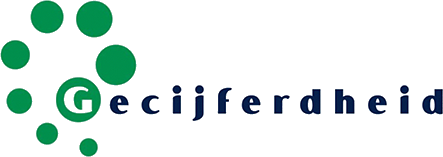
Kees Hoogland has been appointed as professor of Mathematics and Analytical Competences of Professionals at HU University of Applied Sciences Utrecht, The Netherlands, as of 1 September 2020.
“We want to empower people to confidently use mathematics, numeracy, and statistics in their work and daily life.”
“Mathematical and analytical competences are discernible in all professions,” says Kees Hoogland. “Small businesses are involved in logistics, turnover and accounting, a project manager of a medium-sized business manages budgets and adjusts activities and services accordingly, and a cleaner has to calculate how to properly dilute the cleaning agent. With our research we want to ensure that people are better equipped to carry out the quantitative side of their work with confidence and that they are critical of quantitative information they encounter.”
Take away fear
“Many people experience anxiety when using mathematics and numeracy. They say they don’t understand it and can’t do it. This fear is unnecessary, is at the expense of self-confidence and hinders further development. We would like to show people how to deal with numeracy and mathematics by making it practical and functional. My main motivation is to let everyone develop mathematical competences in a meaningful and inspiring learning environment.”
“To make this possible, we must firstly understand what is expected actually of professionals in the field of mathematical and analytical competences. Based on that knowledge, we can then prepare them for this with appropriate education. In primary education much focus is still on pen-and-paper operations and dealing with fractions. People, however, encounter very different things in professional practice and daily life: from personal finances and budget management to converting recipes and from interpreting schematic information to critically looking at causal reasoning. In collaboration with colleagues in the Knowledge Centre Learning and Innovation, we want to critically and fundamentally define the meaning of (relevant) basic competences.”
Making mathematics and numeracy practical
“The research group is also closely involved in formulating and introducing a new numeracy (assessment) framework for Dutch vocational education. This is an important target group in the Utrecht region, where various community colleges are located. “We are working with the community colleges on implementing the new numeracy assessment framework for vocational students, which is aimed at the future, functional use and practical applicability. The new framework is derived from the vocational practices, for example medical calculations in healthcare or “financial literacy” for sales functions. Numeracy is an obligatory topic in vocational training can determine whether students pass or fail. It must therefore be achievable, inspiring, and motivating. Together with students we have been looking at how they encounter numeracy in professional practice and what they want numeracy education to look like.”
Area of concern
“In the Netherlands there are more low-numerate than low-literate individuals, but there is far too little concern for low-numerate individuals. As a research group, we want to put this issue more on the map and, together with partners, look for solutions to improve the mathematical and analytical competences of vulnerable people. In this way, we also increase people’s opportunities on the labour market.”
These themes are also the subject of the Erasmus+ research project Common European Numeracy Framework, in which Kees, together with international partners, is developing a framework to describe levels of numeracy.
The research group is part of the knowledge centre Learning and Innovation (LENI) of HU University of Applied Sciences Utrecht. The central research question of LENI is: how can professionals deal with complexity and dynamics in professional practices and give direction to their actions and development? “In our research group we investigate which mathematical and analytical competences professionals need now that workplaces and professional situations are changing rapidly due to, for example, digitization and technology. How can people develop the necessary competences? We want to stimulate discussion about the most relevant form and content of mathematics, numeracy and statistics in education.”
Strengthen education
“At HU University of Applied Sciences Utrecht, numeracy, mathematics and statistics are a topic in nearly two hundred courses in a broad range of institutes. In my role as professor, I am looking forward to connecting with colleagues from these institutes in order to strengthen mathematics and numeracy education and to ensure that it fits well with the complex professional practice for which students are being prepared.”
“I also work as a lecturer at the mathematics teacher education program at the Archimedes Institute. We develop, together with students, practical tools to increase people’s awareness of the important role of numeracy and strengthen their mathematical competences.”
“The research group will work inside and outside HU, from regional to international. After all, numeracy, mathematics and statistics are truly global phenomena.”
Contact
+316 3410 1701
https://www.internationalhu.com/research/mathematical-and-analytical-competences-of-professionals
